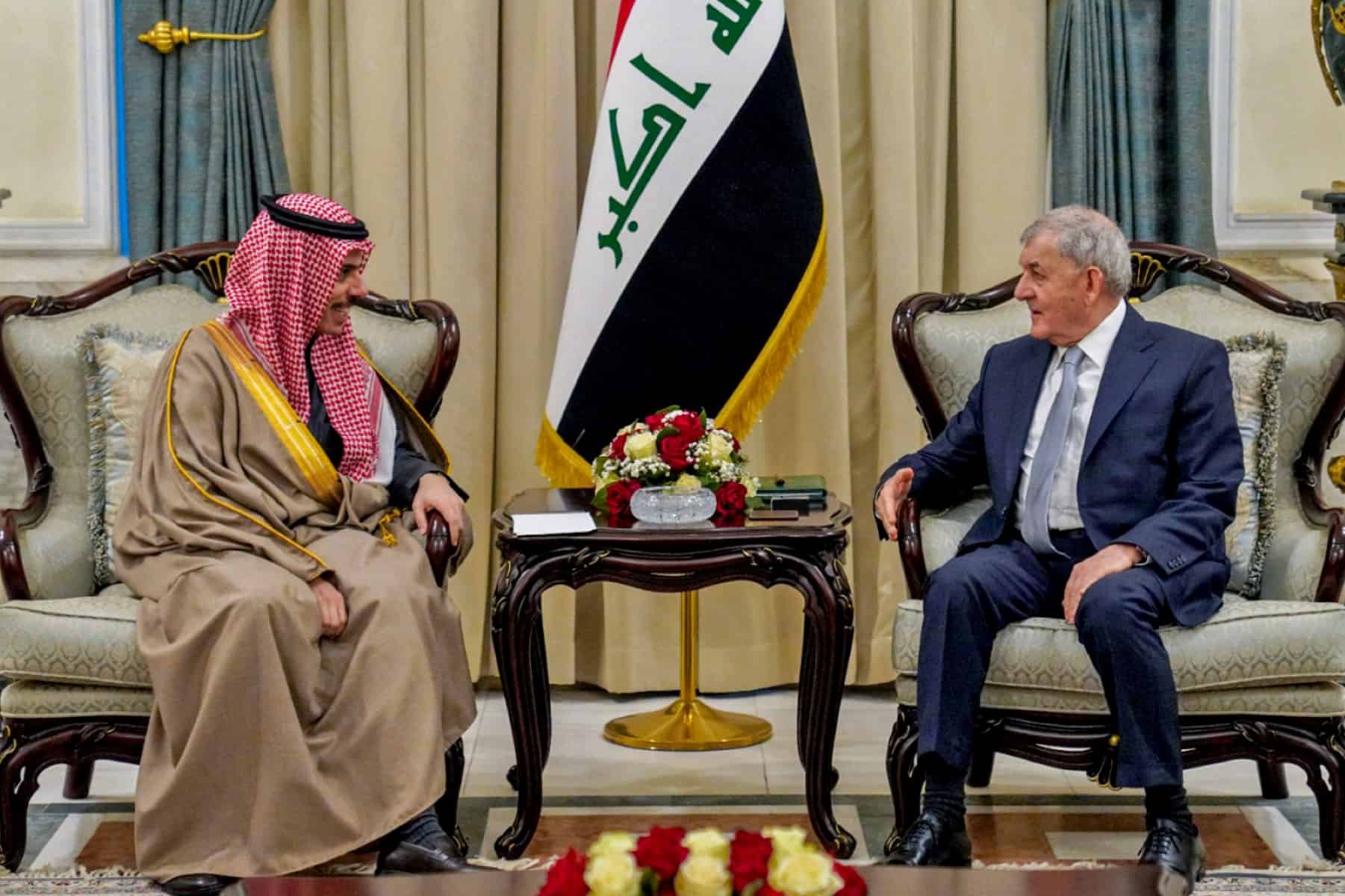Baghdad, Iraq – Iraq’s foreign minister on Thursday called for more economic cooperation with Saudi Arabia, namely in investment and electricity, during a visit to Baghdad by his Saudi counterpart.
Fuad Hussein made no mention of resuming talks between Saudi Arabia and arch-rival Iran — previously mediated by Iraq — during a joint press conference.
“This important visit comes at a time marked by great challenges, so it is essential to talk and discuss these challenges which affect the region as a whole,” Hussein said, alongside Saudi Foreign Minister Prince Faisal bin Farhan.
Hussein hailed “total cooperation” with Saudi Arabia on oil, particularly within the OPEC cartel.
Iraq’s foreign minister said Riyadh was ready to back Saudi companies investing in Iraq, and welcomed it.
“We hope Iraq will be supplied with electricity, either via the Saudi network or that in the Gulf,” he said.
Citing “positive economic development” in Iraq, Prince Faisal said this created opportunities for cooperation between the two countries’ private sectors.
Despite being oil-rich, Iraq suffers from crumbling infrastructure and public services, after decades of conflict and endemic corruption.
Baghdad is currently heavily dependent on neighboring Iran for its electricity and gas, and has sought to diversify its energy sources.
Arch-rivals Iran and Saudi Arabia back opposing sides in various conflicts in the region, including in Yemen.
Baghdad has taken a role as a mediator between the regional rivals, after diplomatic relations between Riyadh and Tehran froze in 2016.
Since April 2021, Iraq has hosted a series of meetings between the two sides, but no talks have been publicly announced since April 2022.








